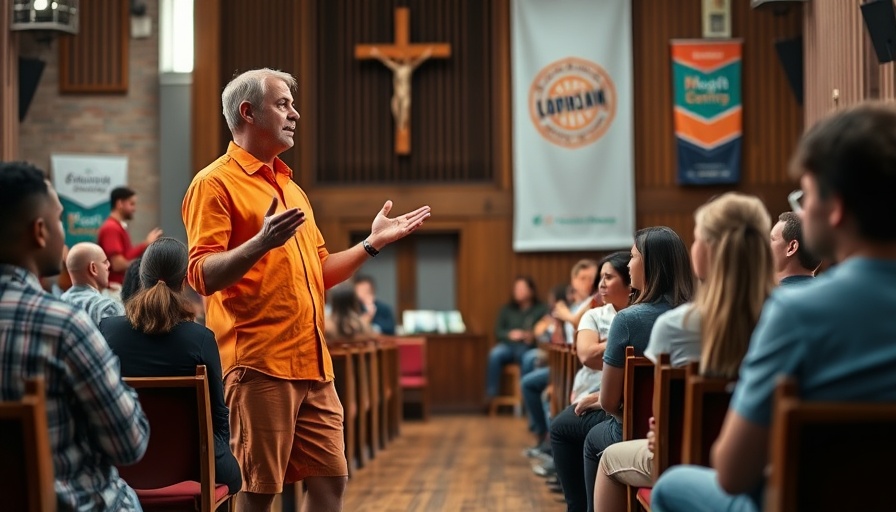
Understanding Goodness: A Glimpse Into Galatians 5
In the teachings of Galatians, particularly verse 22, we come across the sixth aspect of the fruit of the Spirit: goodness. This is a profound topic that the Apostle Paul discusses as essential for believers who are seeking to reflect the character of God in their lives. As we delve deeper into this important characteristic, we discover how understanding and living out goodness can transform not only our hearts but also the lives of those around us.
In Men's Breakfast - Fruit of The Spirit - Galatians 5 - Goodness, we explore the vital theme of goodness as presented in Galatians, leading to an enriching discussion on cultivating this fruit of the Spirit in our lives.
What is Goodness?
Goodness is deeper than just being nice or doing kind acts. To understand goodness, we turn back to the book of Genesis where God repeatedly calls His creation "good." He declares it "very good" when humanity is created, emphasizing the intrinsic value of fulfilling one’s purpose and doing what is right. In this context, goodness can be seen as fulfilling our God-given potential by acting in accordance with His design.
The Importance of Goodness in Our Lives
Goodness, as described in Psalm 145, provides a reflection of God’s own character. It is marked by compassion and the desire for the well-being of others. Just as God extends goodness towards all, we are called to mirror this trait in our daily interactions. This means aligning our actions with God’s design and demonstrating genuine care for others. Whether it is in our families, friendships, or communities, striving for goodness can create beautiful harmonies that contrast sharply with selfish desires.
Goodness in Action: Practical Implications
As fathers, mothers, friends, and community members, we are tasked with seeking the good of those around us. What does that look like practically? It demands time, intention, and sometimes, a significant amount of energy. For instance, if we desire to be good parents, we should focus on nurturing our children spiritually, teaching them about the love of Jesus, and guiding them in making wise decisions. Engaging in Bible studies together or sharing stories about faith can deepen our connections and cultivate goodness in our homes.
Contemporary Challenges to Goodness
However, embodying goodness often comes with challenges. In a world that sometimes values superficial appearances over authentic relationships, we might face the temptation of falling into a pattern of empty niceness—a facade that lacks true meaning. Jesus warns against this in Matthew 23, comparing such attitudes to “whitewashed tombs” that appear beautiful on the outside but are dead inside. We must strive not to confuse being good with simply looking good.
How to Cultivate Goodness
So how do we encourage and grow this fruit of the Spirit in our lives? Paul encourages believers in Galatians 6:9 to continue doing good without giving up, as there will be a harvest for those who do. This cultivation process begins by remaining reliant on the Holy Spirit for strength in our endeavors. Praying, meditating on scripture, and surrounding ourselves with fellow believers fosters an environment where goodness can thrive. Setting aside time for personal reflection is essential to discern how we might serve those God has placed in our lives.
The Highest Form of Goodness
Ultimately, the pinnacle of goodness we can offer to others is pointing them to Jesus. Sharing the Gospel is the best good we can do—a transformative act that can lead others to salvation. When we recognize the greatest good done for us through Christ’s sacrifice, it becomes integral to our mission to replicate that goodness in the lives of others. Facilitating spiritual discussions with friends or neighbors can lead to meaningful relationships rooted in genuine concern for their eternal well-being.
A Final Encouragement
Feeling overwhelmed by the expectation of embodying goodness is common, and it’s essential to remember that we are not meant to carry this burden alone. Engaging with God, asking for His help in our weak moments, and leaning on the community around us can provide the support needed. Goodness should not feel like an exhausting task—it is a joyful response to the love that Christ has first shown us.
Let us encourage one another to aim for goodness in all aspects of our lives. As we reflect the character of God and actively seek to embody goodness, our communities can be transformed. Together, let’s seek to share this beautiful aspect of the fruit of the Spirit.
 Add Row
Add Row  Add
Add 








Write A Comment